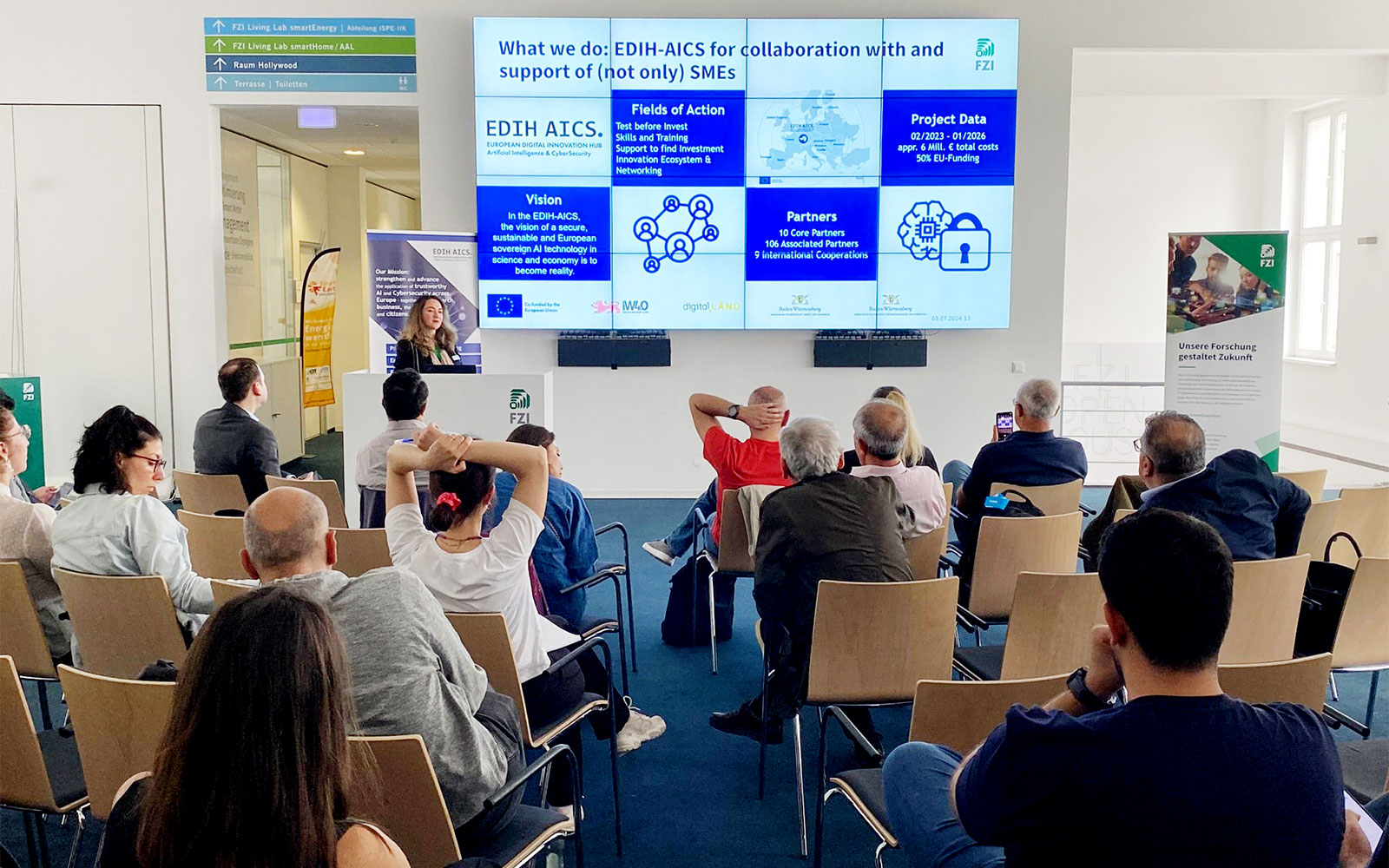regioKArgoTramTrain
Jointly moving people and goods
Whether in mobility, robotics, healthcare, energy, logistics, or production, the FZI brings AI research straight to companies and society. Our scientists not only develop technological solutions, but also consider ethical and legal issues right from the start. The result is responsible AI that delivers secure, transparent, and practical value.
We develop AI-based solutions for smart transportation infrastructure for OEMs, suppliers, and public transportation operators. Our research enables automated vehicles and autonomous shuttles to be used safely, efficiently, and in an environmentally friendly manner in urban areas.
Our flexible robot solutions can automate even the most complex tasks in manufacturing, at home, or in space. By combining AI, human-robot interaction, 3D environmental understanding and force-based handling strategies, we collaborate with industry partners to develop robust assistance systems for the future.
Together with clinics, care facilities, and technology providers, we develop AI systems that offer more than just administrative assistance. Our solutions support medical professionals in diagnosis, therapy, and care to make the healthcare system more efficient and humane.
AI is one of the key technologies of the future and crucial to Germany’s competitiveness as a business location. In our Applied Artificial Intelligence research focus, we develop practical AI methods and put them to use in a targeted manner – for industry, the public sector, and society. We accompany the entire development life cycle of embedded AI systems – from the initial idea to validation in real-world operation. Our projects combine research with application, for example in system development or language models – always with the aim of making AI safe, understandable, and effective.
Jointly moving people and goods
Stopping pathogen transmission in hospitals quickly, reliably, and comprehensively using AI.
Body-worn sensors and wearables for recording vital data and identifying health-related issues in mental and psychosomatic disorders
Efficient and highly accurate data generation for AI applications in autonomous driving
Generative AI in Software Development with a focus on smart home applications.
Automated modeling and analysis using intelligent network algorithms and graph methods
Artificial Intelligence in Traffic Systems
Supercomputing Platform for Highly Automated Vehicles
Data management repository for care-supporting AI applications
Flexible refrigeration systems against the background of increased decarbonization

You see the potential of AI for your company, but there are still many open questions?
The FZI supports you with customized AI consulting services, identifying your needs through a tailor-made process analysis. We advise you on strategic issues, provide your managers and employees with practical knowledge in interactive workshops, and work with you to develop concrete AI solutions.
The FZI engages in THE AI LÄND, the de:hub Karlsruhe for Applied Artificial Intelligence, and the DIZ | Digital Innovation Center. We are also active in national and international initiatives, associations, committees, and networks to promote knowledge and technology transfer in applied Artificial Intelligence. Benefit from our expertise and strong network and unlock your company’s full potential with AI research from the FZI.
A strong infrastructure is essential for strong AI research. Interdisciplinary exchange and state-of-the-art technical equipment are also crucial for the FZI’s research projects. After all, intensive exchange and mutual inspiration between science and industry, and a high-performance research environment benefit everyone.

Areas of expertise: Data Analytics / Generative AI / AI Engineering / Edge AI / Multimodal AI / Reinforcement Learning

Areas of expertise: Legal informatics / AI law / AI regulation & certification / Decision support